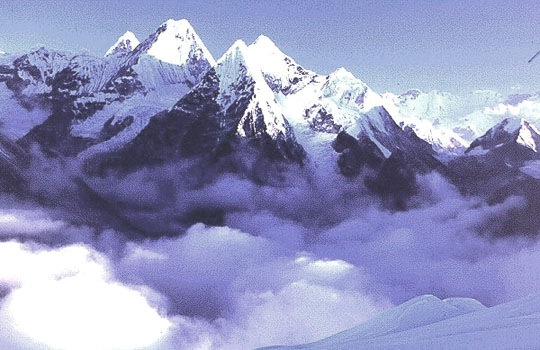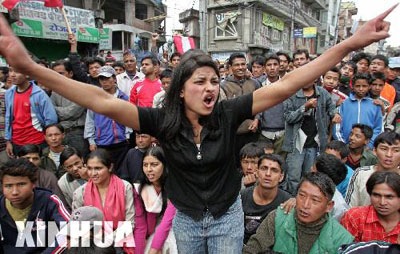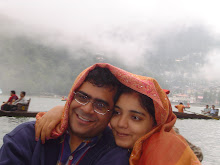
Regardless of your political inclinations, you've got to be happy about this.
Nepal is set to abolish its once revered monarchy and create a new republic in the Himalayas.
I've had the honor of visiting Nepal on a few occasions, in solidarity with the communities campaigning against the Melamchi Valley Water Supply project. The project was designed to divert water from the Melamchi valley to the neighboring Kathmandu valley to provide drinking water for the inhabitants of Nepal's capital city.
Aside from the dangers for the inhabitants of Melamchi Valley (water scarcity during the dry season, potential overflow and flooding during the rainy season) and potential design flaws (the project included a 25 kilometer tunnel through the earthquake prone Himalayan mountains) the thing that worried me most about this project was its premise: It's ok for Nepal's biggest city to continue to grow at alarming levels, to continue to attract lots of new Nepalis leaving their villages, while those who stay in the villages remain impoverished. The government (at this time the King's government) would be happy to invest in the booming city, but not to provide badly needed infrastructure to those in the rural areas who need it most.
Though Melamchi is close to Kathmandu, in 2004 and 2005 when I visited it was firmly under control of the Maoists (Maovadis). When we arrived in Melamchi and found the guest house where we were to stay completely full, we stayed with a relative of our guide who claimed to be the proud owner of the "poorest" land and house in the village. The family consisted of this man, his wife and two teenage children, a son and a daughter. My conversation was almost entirely with the father, as he was the only one who spoke Hindi (which he learned while driving taxi in India).
Being the blunt American that I am, I immediately questioned him about the two things that I really cared about - the Maoists and the water project. His replies were polite and somewhat curt. "What should we have to do with the Maoists? We are common people and the King has protected us for generations." And "water is needed by all. If we have much and Kathmandu has little, why shouldn't we share?"
Two hours and a plate of daal bhat later, his tune had changed. "Look Sameer, we have lived here for generations and the king has done nothing for us. The road you came up on, that was built by the Maoists. The water pipes that we have, they were built by the Maoists. At least they are doing something. And this project, I don't know what it will do but we are powerless to stop it."
It was a valuable lesson in the importance of trust building.
I can't honestly say whether the current politically disparate forces in Nepal - Maoists, liberal democrats and the remnants of the Royalists - will succeed where others have failed. But I, and 15 million Nepalis, at least have some hope today.


No comments:
Post a Comment